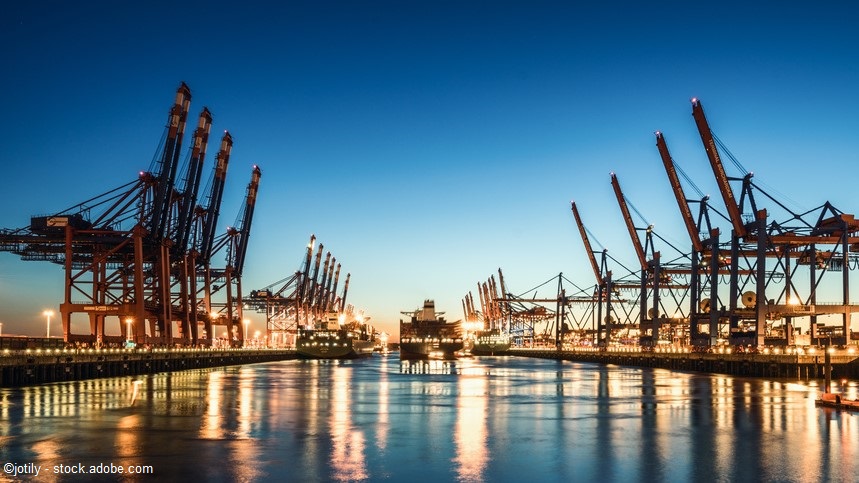21.02.2020
Coronavirus - effects on shipping

Luther.Sea: Since the beginning of the year, the news has been dominated by the coronavirus, a topic that is also becoming increasingly important for the maritime economy. For example, seven of the world’s ten most important trading ports are located on the coast of China, so it was only a matter of time before shipping felt the effects of the coronavirus. The shipping industry is being hit by the effects of the virus at an extremely bad time, as the new regulations of the IMO (International Maritime Organization) regarding the permitted sulphur emissions from ships have also been in force since the turn of the year and are leading to additional costs.
Implications for shipping companies
The large shipping lines have been the first in the industry to react, reducing their transport capacities around the Chinese mainland in step with each other. The reason for this is probably the limited demand for transport, caused by factory closures, extension of the Chinese New Year holidays and lower production volumes. In addition, freight rates for transporting a container from China to Europe have fallen by 14% since January 2020[1]. To date, this trend is not likely to be stopped by a reduction in supply. The reduction in scheduled calls at ports in China is leading to a worldwide build-up in ports of containers that are meant to be delivered to industry in China. The word is in the trade that storage limits will soon be reached in some ports, to guarantee efficient cargo handling.
But it is not only container shipping that is feeling the effects of the coronavirus. The bulk carrier and tanker markets in particular are under pressure and dependent on Chinese imports.
The People's Republic imports around 40% of global dry bulk shipments and is thus the largest purchaser of ore, coal and so-called minor bulks. Owing to factories being currently closed, both demand and freight rates are falling at the same time. Currently, freight rates are at a level of less than 90% compared to last year's peak. This development is also reflected in the Baltic Dry Index, which has fallen by more than 1,000 points to just over 400 points since the virus was discovered. The Baltic Dry Index reflects the demand for transport capacity for bulk goods and in the past was considered an indicator of impending global economic turbulence. However, the industry points out that the reason for the low charter rates is not just the coronavirus. The increased fuel costs due to the new IMO regulation regarding sulphur emissions were also an important factor in the low charter rates.
For the tanker market, the coronavirus strikes in already difficult times. Whereas the charter rates had largely withstood earlier political events in the Middle East (in particular the conflict between the USA and Iran), they are unable at present to cope with the collapse in demand from the Chinese market. Between mid-January and mid-February, the oil price fell by about 10%. Charter rates for oil tankers have fallen even more drastically, with VLCCs (very large crude carriers) particularly affected. Oil transport between the Middle East and China has more than halved compared to February 2019.
Impact on shipyards
The consequences of the coronavirus are, however, not only reflected in changes in transport routes and demand for freight capacity; shipyards and important suppliers are also affected.
As a result of the new IMO regulations (on reduction of sulphur oxides) that came into force in January, Chinese shipyards had well-filled order books for the installation of exhaust-gas cleaning systems on cargo vessels. Violation of the new IMO regulations is subject to drastic penalties. The shipyard closures caused by the coronavirus and the reduced availability of manpower are now seeing the refit work come to a standstill. Consequently, vessels that should have been refit long ago cannot continue their journey and are thus deprived of their income. Further claims against the owners arise from potential charterers who expected the ship to be delivered on time. The same problem applies to new builds, where the delivery date can no longer be met owing to delayed work.
Outlook
In a conversation with us, the managing director of a Hamburg shipping company warns against too much hysteria: "The virus increases volatility in shipping, especially in the dry bulk sector. At present, however, no long-term negative consequences are to be expected.”
The wider effects of the coronavirus on shipping remain to be seen. These depend on the currently unforeseeable further course and spread of the virus. The frequent media coverage relating to cruise ships gives an idea of what could happen if states are forced to take further measures to contain the virus. Entry bans and the resulting restrictions on the movement of goods would probably be the toughest and most costly measures for the industry.
The legal assessment of various facts in the context of coronavirus usually appears complex, since an assessment of the individual case is always required. It should always be established whether a case of force majeure is involved. A well-founded legal assessment seems indispensable in this scenario.
Daniel Fehling, LL.M. (Auckland)